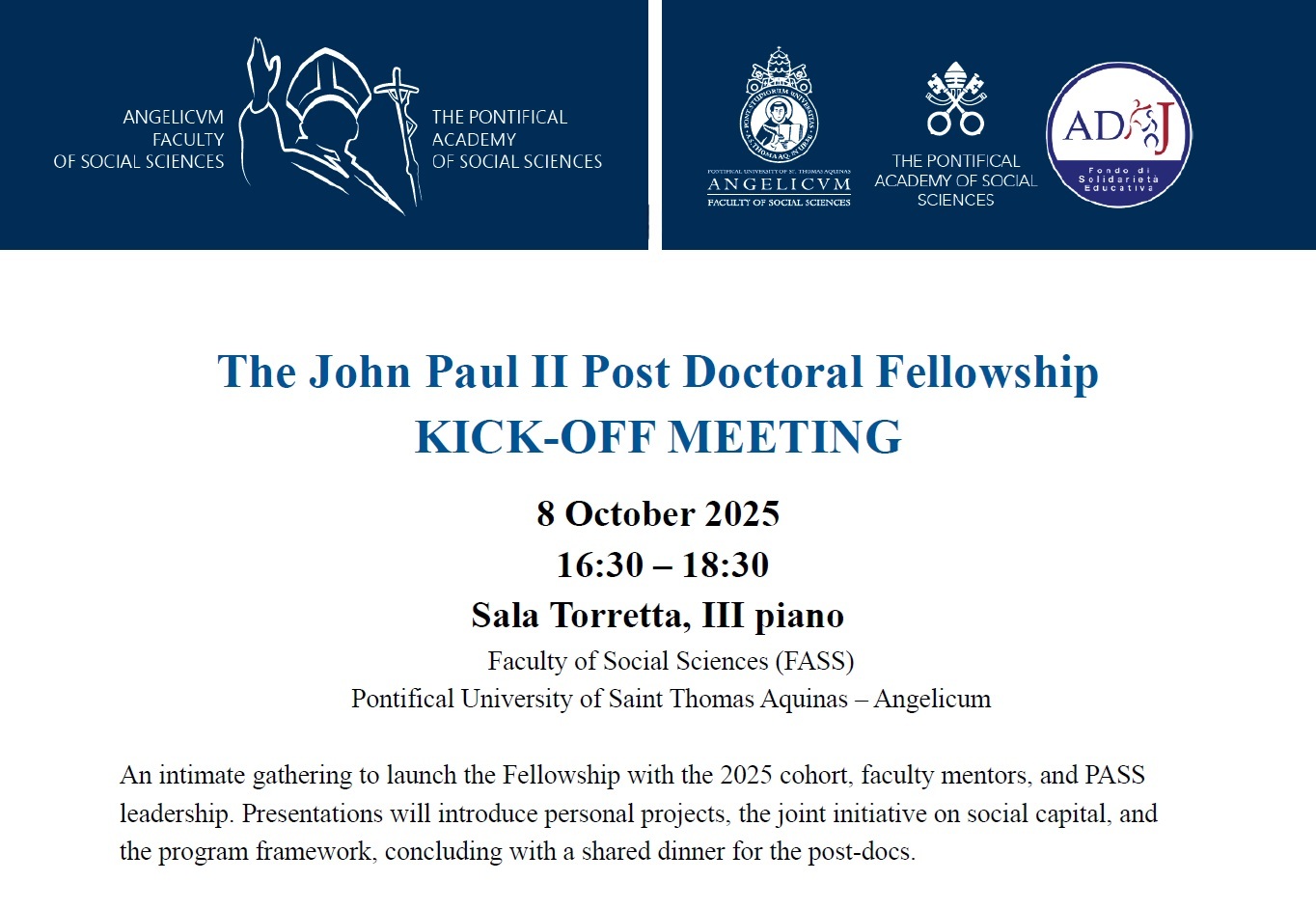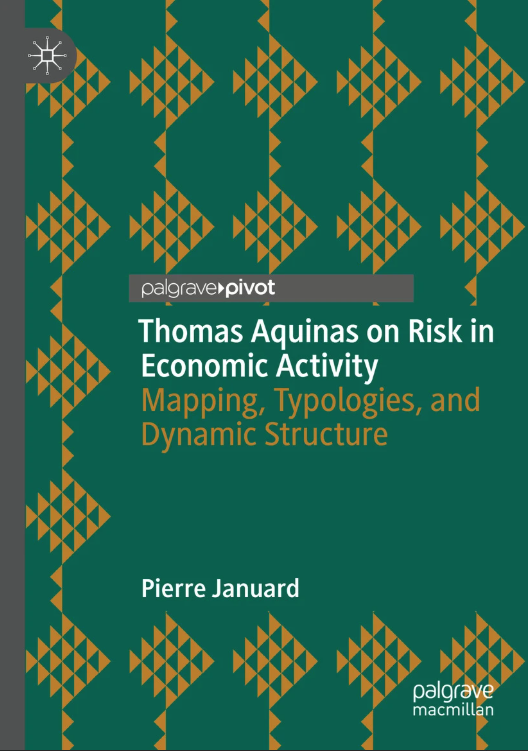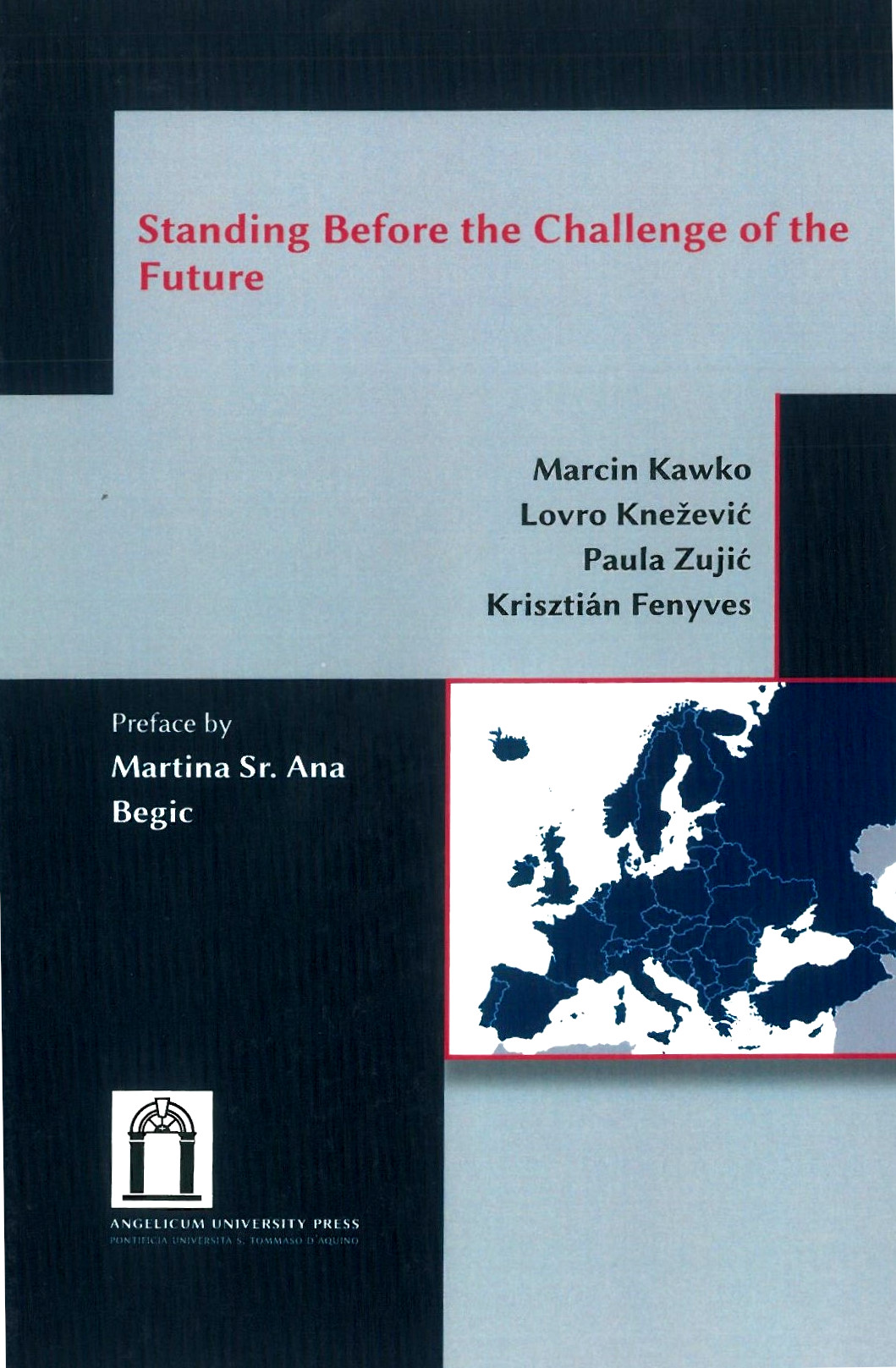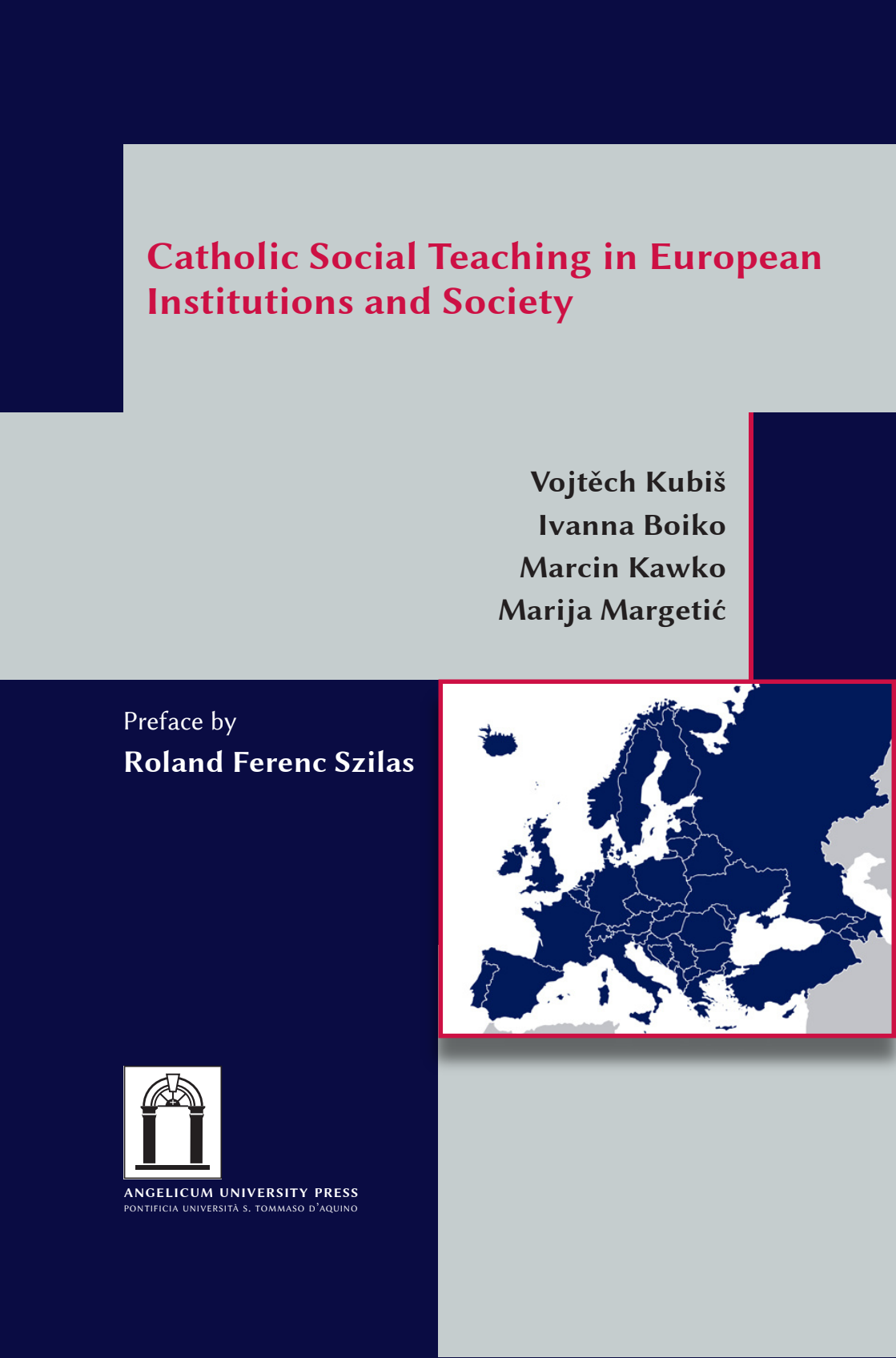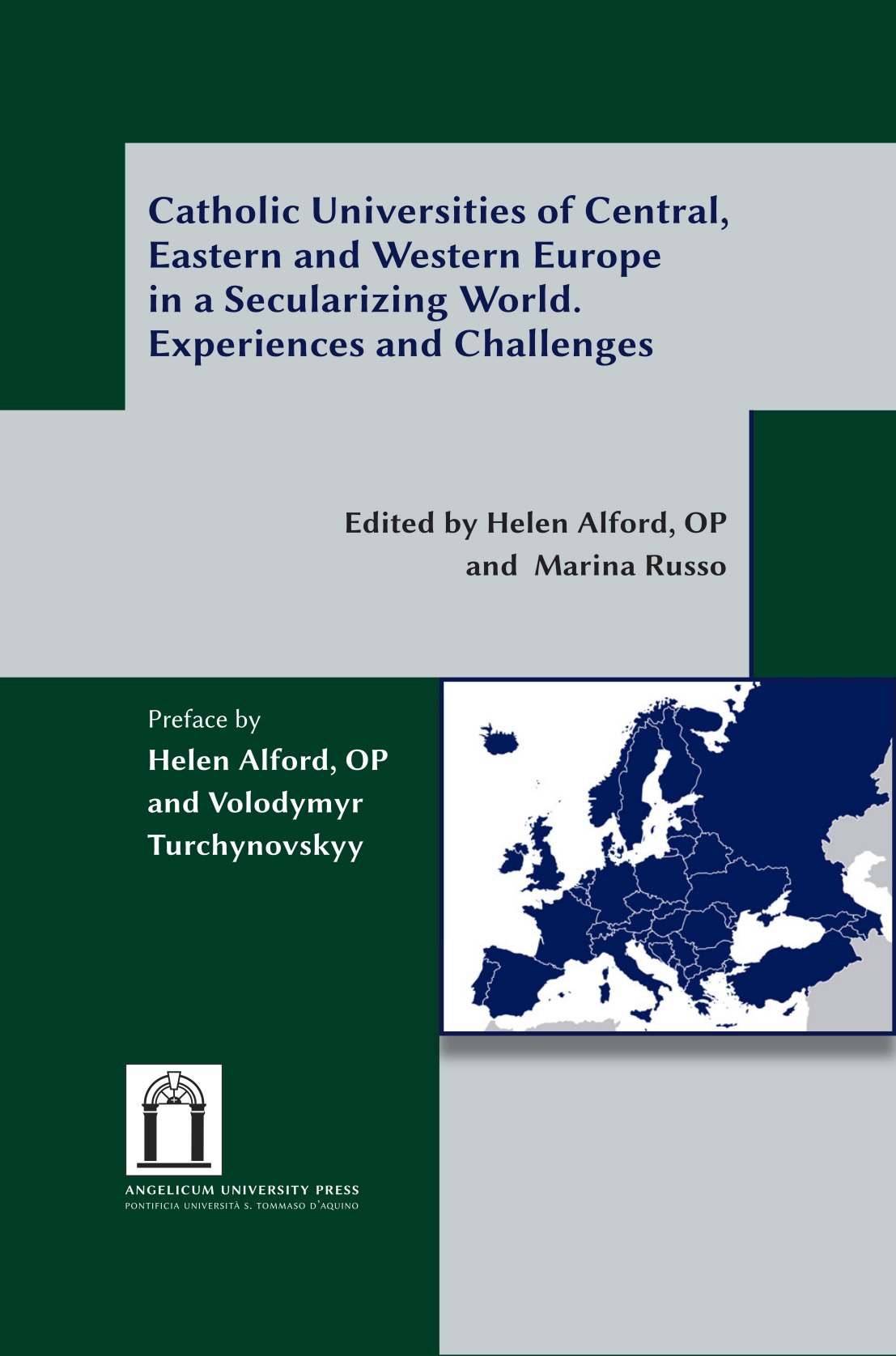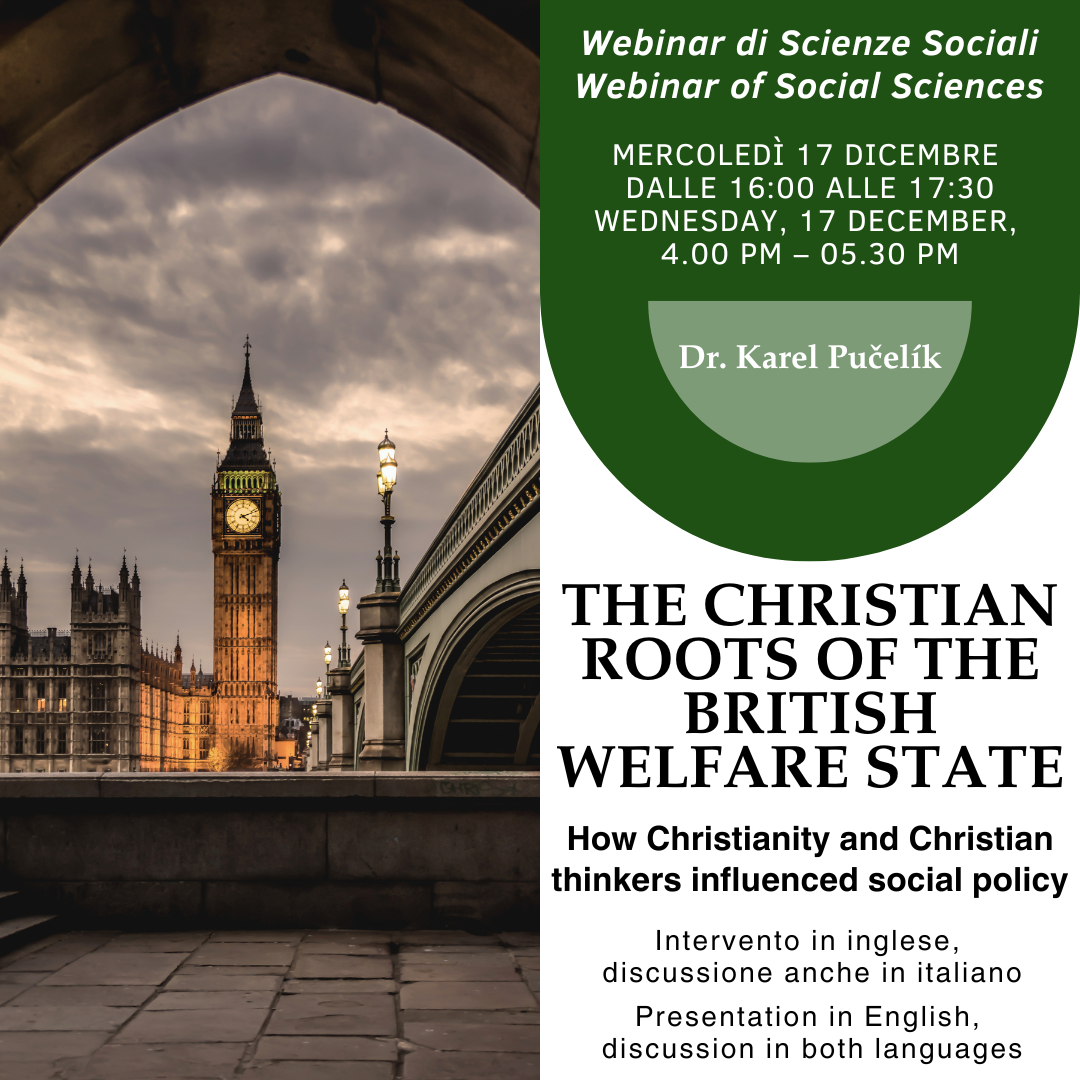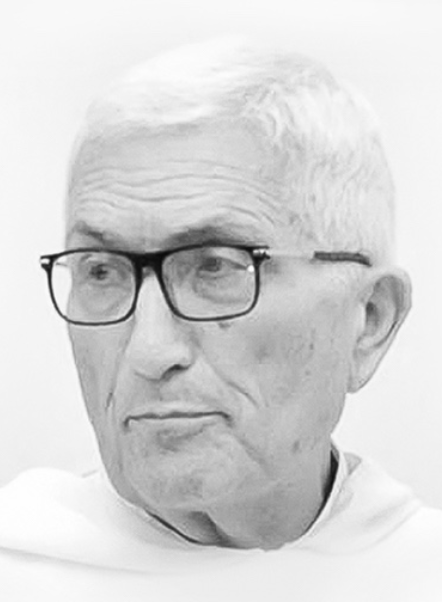
 he Economy of Francesco is “an event that will help bring us together and allow us to meet one another and eventually enter into a ‘covenant’ to change today’s economy and to give a soul to the economy of tomorrow.” These are the words of the Holy Father that appear in his official letter of 1 May 2019 for the The Economy of Francesco event. It is no accident that in the Italian version of his letter, the Pope uses the term ‘patto’, which comes from the Latin word pactum, “derived from pacisci, which means ‘negotiate,’ with the same root of pax-pacis”, i.e., peace (OED 2020). A “pactum,” in its essence, is only possible by “approaching, speaking, listening, looking at, coming to know and understand one another, and finding common ground: all these things are summed up in the one word ‘dialogue’. If we want to encounter and help one another, we have to dialogue” (Franciscus 2020a, 198). A dialogue of inclusion is needed—to use the words of the Pope, a dialogue “in which not only believers but all men and women of good will, regardless of differences in creed and nationality, can participate, inspired by the ideal of fraternity” (Franciscus 2019a, 9).
he Economy of Francesco is “an event that will help bring us together and allow us to meet one another and eventually enter into a ‘covenant’ to change today’s economy and to give a soul to the economy of tomorrow.” These are the words of the Holy Father that appear in his official letter of 1 May 2019 for the The Economy of Francesco event. It is no accident that in the Italian version of his letter, the Pope uses the term ‘patto’, which comes from the Latin word pactum, “derived from pacisci, which means ‘negotiate,’ with the same root of pax-pacis”, i.e., peace (OED 2020). A “pactum,” in its essence, is only possible by “approaching, speaking, listening, looking at, coming to know and understand one another, and finding common ground: all these things are summed up in the one word ‘dialogue’. If we want to encounter and help one another, we have to dialogue” (Franciscus 2020a, 198). A dialogue of inclusion is needed—to use the words of the Pope, a dialogue “in which not only believers but all men and women of good will, regardless of differences in creed and nationality, can participate, inspired by the ideal of fraternity” (Franciscus 2019a, 9).
Many who study dialogue find resonance with the Pope’s words:
Difference is enriching (Benjamin – Sullivan 1996).
Dialogue continues to be a key factor in promoting spaces of mutual engagement in a simplistic and polarized era (Rose-Redwood et al. 2018). Dialogue is essential because words are not innocent (Anderson 1996); they are important (Garrison 2013).
Sharing is essential to dialogue: Sharing the fact of having lived with the fact of having to live, as a meeting of distances, passing the torch of the future: combining the wisdom of those who have already lived their whole life with the enthusiasm of those who still have to build that life and, indeed, live it (Franciscus 2018). Because share is not just a button (Ljungberg et al. 2017), and it is not neutral (Hemsley et al. 2018).
Difference, dialogue, and sharing: This is what The Economy of Francesco meant and means for us (Federici 2020).
Dialogue and sharing among the like-minded but also among those with opposing views are what guided us on our path and what unite us in our Women for Economy proposal. Women for Economy has been an incubator for persons of the most diverse origins and traditions who met and discussed in order to find a difficult, though stimulating, project to realize together, for the role of women in the future. All this, between ideality and reality, between possibility and probability, between the theoretically optimal and, therefore, impossible, and the compromise which is not perfect but achievable, and in any case positive.
Women and men, fathers and mothers, communities and individuals, law and ethics, institutions and society, public and private, small and large, leaders and collaborators, believers and non-believers, young people and the elderly: all should be invited to the dialogue. Through the dissemination and sharing of information, experiences, joy, failures, successes and pain; through horizontal communication among peers (Costanza-Chock 2006); vertical top-down communication (Bartels et al. 2010) and ascending bottom-up communication (Wroblewski 2013).
These apparent polar opposites, intrinsic “oxymorons,” can actually flourish together. However, for this to occur one must change perspectives. Not only must I, the actor, be willing to change my point of view, but also the other, my interlocutor, must change his or her view of me and have the patience, kindness and intelligence to allow me to understand him or her. How? In my experience, it happened through the power of example and the sharing of experiences afforded by the Women for Economy initiative and our group work, which lasted for seven months. We worked together, though physically distant from one another because of COVID-19 (The group members never actually met physically, only online.)
As a young male rooted in Western culture and the Catholic faith, I had the opportunity to hear, see and in some way, to experience, certain aspects or standards that I had considered normal, which are actually potential affronts towards women. Why? As a scholar and young manager getting a glimpse of the first real ‘pink’ decade of humanity (Federici 2019), certain social norms (Federici 2020), practices in the workplace (Litman et al. 2020), mannerisms in speech (Abbatecola 2021), legal flaws (Serpico 2018) or specific customs that as a male I found neutral, were in veritatem, authentic violations of our times in our so-called advanced Western society. By this I mean, as a student of law, that even the law can be wrong: and for this reason it is beneficial for it to be changed, even if it does not appear socially necessary. For example, whenever the law provides for work leave for the mother but not for the father of the child (even when this is considered socially acceptable) it is right to intervene, through the legislative process. The future is not only the photograph of a faded present, cleaned up thanks to a higher definition of the picture (form), but it is also and above all the awareness of building a new design within the empty quadrants of that snapshot, for a space which must not be filed but filled. Women's dignity is a consistent and constant question of form and substance. And thanks to Women for Economy, I was able to achieve a greater awareness, heightened sensitivity and proactive and purposeful attitude thanks to sharing, listening, silence, study and the constant focused effort of a man among, for and with women. Talking about women, talking with women and listening to women. Likewise, my colleagues from the Village were able to appreciate and understand nuances that I was able to add, as the only male member of the group, to an otherwise purely female perspective.
Hence, coming back in medias res from this direct experience to a more abstract but no less significant experience: women and men together, called to be forces of nature that dialogue, share and create (Franciscus 2015, 79). If we consider ourselves alone, we are just single grains of sand (Matthew 7:26), but if we consider our experiences and daily actions, our testimonies and words, also through our posts on social networks, we are the bridges that can connect the different parts of the world. Through our experience at The Economy of Francesco, this is what we became. We are and will be witnessing it (Franciscus 2020, 21).
Dialogues are made through words and facts (Paulus VI 1964, 21), always thoughtful, deep, proactive and positive. Always raising awareness by sharing our stories, also through tools made available by the Infosphere Society (Floridi 2014), such as videos, podcasts, stories and posts. Tradition and innovation and both necessary for dialogue.
We exist offline (on land) and online, for an onlife life (Floridi 2014). What does this mean? It means that, paraphrasing the University of Oxford professor, we live in a mangrove society. In other words, we live in a locus in which, at the dawn of the twenties in the twenty-first century of the third millennium, it is no longer possible to separate online and offline realities. Metaphorically, we are like mangroves, those unique beings in the universe that live in that particular habitat in which fresh and saltwater come together at the mouth of a river flowing into the sea. It does not make sense to ask ourselves what kind of water is found at that particular point, whether fresh and salt. In that clearly defined space of our existence, the essence takes on a new connotation for a precise solution and a new unmistakable name because there, by definition, the water is neither salt nor fresh. And likewise, we too are continuously onlife — a dimension where tradition and innovation, namely the green of sustainability understood latu sensu and the blue of technology (Floridi 2020), combine with the human intellect. And with a purpose that is different and higher than that of mere financial gain, but rather, teleologically oriented towards an ethical and fraternal enrichment, the union gives rise to the fundamental ingredients of a new recipe for humanity that includes diversity.
We ourselves are media too (Agostinelli – Meazza 2018). We are the factor that can change the world (Rees 2018): we are change-makers (The Economy of Francesco, final statement & common commitment 2020). Because we are the specific weight of the future that, through our dialoguing diversity, cement the bridge that binds us to the best part of ourselves that does not yet exist. But as change-makers we will be able to build it and participate in a fraternal world of unity.
Luca Federici
References
Agostinelli, A. – Meazza, S. (2018), People Are Media: Digital Business in the Selfie Era, Independently published, Amazon.
Andersen, T. (1996), “Language is not innocent”, in F.W. Kaslow, Handbook of relational diagnosis and dysfunctional family patterns, Wiley series in couples and family dynamics and treatment, John Wiley & Sons, pp. 119–125,
Bartels, J. – Peters, O. – De Jong, M. – Pruyn, A. – van der Molen, M. (2010), Horizontal and Vertical Communication as Determinants of Professional and Organizational Identification, «Personnel Review» 39/2, pp. 210–226.
Benjamin, O. – Sullivan, O. (1996), The Importance of Difference: Conceptualising Increased Flexibility in Gender Relations at Home, «The Sociological Review» 44/2, pp. 225–251.
Costanza-Chock, S. (2006), Analytical Note: Horizontal Communication and Social Movements, in Massachusetts Institute of Technology, pp. 1–35, http://web.mit.edu/ [retrieved 4 February 2021].
Diritto Penale e Uomo – DPU (2021), Lingua del diritto e linguaggi di genere – Con Angela Condello ed Emanuela Abbatecola – Ch. 1, in YouTube, 19 January, 2021, www.youtu.be/ [retrieved 21 January 2021].
Economy of Francesco (2020), Economy of Francesco final statement & common commitment, in Francesco Economy, www.francescoeconomy.org/ / [Retrieved 4 February 2021].
Federici, L. (2019), Il decennio Rosa: di come l’Umanità non sia mai stata cotanto Donna #PinkForce, in LinkedIn, www.linkedin.com/ [retrieved 14 February 2021].
Federici, L. (2020a), Premio Giovani Urbinati Straordinari – Discorso di Luca Federici, LinkedIn, www.linkedin.com/ [retrieved 28 February 2021].
Federici, L. (2020b), The social norms are relevant to bring us to another Next (Generation) level, LinkedIn, www.linkedin.com/ [retrieved 4 February 2021].
Floridi, L. (2014), The Fourth Revolution: How the Infosphere is Reshaping Human Reality, Oxford University Press.
Floridi, L. (2014), The Onlife Manifesto: Being Human in a Hyperconnected Era, Springer.
Floridi, L. (2020), Il verde e il blu: Idee ingenue per migliorare la politica, Raffaello Cortina Editore.
Franciscus (2015), Encyclical Letter Laudato si’ of the Holy Father Francis on care for our common home, Vatican Press.
Franciscus (2018), Sharing the Wisdom of Time. By Pope Francis and Friends, Loyola Pr.
Franciscus (2019a), Letter of the Holy Father for the event “Economy of Francesco”, Libreria Editrice Vaticana.
Franciscus (2019b), Message of His Holiness Pope Francis for the launch of the Global Compact on Education, Libreria Editrice Vaticana.
Franciscus (2020a), Encyclical Freatelli tutti on Fraternity and Social Friendship, in Vatican, www.vatican.va/
Franciscus (2020b), Video message of His Holiness Pope Francis to participants in the meeting, International Online Event: “The Economy of Francesco – Young People, A Commitment, The Future”, Basilica of Saint Francis of Assisi, 19-21 November 2020, in Vatican, www.vatican.va/
Garrison, T. (2013), Words Are Important, «Oceanography» 26/1, pp. 106–107.
Hemsley, J. – Jacobson, J. – Gruzd, A. – Mai, P. (2018), Social Media for Social Good or Evil: An Introduction, «Social Media + Society», July-September, pp. 1–5.
Litman, L. – Robinson, J. – Rosen, Z. – Rosenzweig, C. – Waxman, J. – Bates, L.M. (2020) The persistence of pay inequality: The gender pay gap in an anonymous online labor market, «Plos One» 15(2): e0229383, doi.org/10.1371/journal.pone.0229383 [retrieved 1 February 2021].
Ljungberg, J. – Stenmark, D. – Zaffar, F.O. (2017), Like, Share and Follow: A Conceptualisation of Social Buttons on the Web, in C. Linnes, ed., Nordic Contributions in IS Research, Springer.
Oxford English Dictionary = OED, www.oed.com [retrieved 31 October 2020].
Paulus VI, Encyclical Ecclesiam suam on the Church, 6 August 1964, in Vatican, www.vatican.va/
Picchorri, E. (2020), Quando le parole valgono, in Treccani, L’Enciclopedia Italiana, 23 ottobre 2020, www.treccani.it/ [retrieved 23 October 2020].
Rees, M. (2018), On the Future: Prospects for Humanity, Princeton UP.
Rose-Redwood, R. – Kitchin, R. – Rickards, L. – Rossi, U. – Datta, A. – Crampton, J.W. (2018), The possibilities and limits to dialogue, «Dialogues in Human Geography» 8/2, pp. 109–123.
Serpico, F. (2018), Diritto penale e valori culturali. Note sul delitto d’onore nell’Italia unita, «Archivio Penale» 2 (Maggio–Agosto 2018), pp. 295–310.
Wroblewski, T. (2012), Top-Down, Bottom-Up and Lateral: A Framework for Planning Communication, Independently published. Amazon.
 IT
IT  EN
EN 
